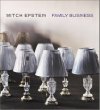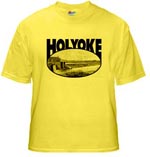by Laurel | April 10th, 2013
[Note: George W. King, the subject of this series of posts beginning below, was not native to Holyoke moving from Rhode Island around 1907 for the purpose of employment. As far as my research can determine there are no living family members connected to G. W. King in western MA.]
01 April 1920
King’s Conduct is Basis of Inquiry
Allowed Girls Use of Boys’ Club Gymnasium is Claimed — Officials Pass Vote of Confidence.
Charges that have been brought against Superintendent George W. King of the Holyoke Boys’ Club relative to his allowing girls in the Boys’ Club building have been filed with Judge John Hilldreth of the police court and are being considered by him. This followed circulation of many reports, some of a detrimental nature, which were brought to the attention of City Marshal William D. Nolen and by him investigated.
Marshal Nolen had a number of girls brought before him. No evidence was secured or indicated supporting the assertion of anything immoral or in the slightest degree approaching the criminal. So far as can be learned, Superintendent King admitted the girls at hours at which the boys were not present, without any direct sanction of the Holyoke Boys’ Club Officials, by vote or otherwise. This was in response to urgent requests that they be permitted to use gymnasium and shower baths when they were not being used by they boys and at such hours as boys are not admitted. The following exl explanatory statement was issued today as a result of an official conference of members of the Boys’ Club:
“A largely attended informal meeting was held last evening at the Holyoke Boys’ Club at which Superintendent King submitted a detailed statement in regard to his work at the club. His statement and also the various reports current in the city defamatory of him were carefully considered and discussed in the light of all the known facts of the case, after which a unanimous vote was passed of confidence in the integrity, uprightness and hones purpose of Mr. King during the many years of hi service, having special reference to the use of the club by little girls. Mr. King was found to have been actuated at all times only by the highest motives of interest in the welfare of children, both boys and girls. It was the conviction of all present that his remarkable personality and love for children — recognized by all who have known Mr. King well — is the true explanation for the situation that was found to exist.
The meeting likewise unanimously pledged to Mr. King it active and unlimited support, both moral and financial, to protect him in every way, Committee for the meeting: John F. Adie, William A. Allyn, Fred F. Bennett, Thomas S. Childs, Martin L. Cramer. John M. James. Clifford K. Judd, Mrs. Edward D. Lamb, Don C. Mackintosh, Edgar M. Osgood, Wilfred A. Pearson, A. Judson Rand, Sydney S. Rogers, Benjamin Silverman, Chester H. Struble, John C. Sycamore, Frank E. Taylor, Fred S. Webber, Sidney E. Whiting, Frank G. Willcox and C. J. Atkinson of New York, Executive Secretary Federated Boys’ Clubs of America.”
Judge John Hildreth today returned to the city marshal the evidence that had been placed in his hands for such action as he deemed desirable. This puts the matter up to City Marshal Nolen and he has not as yet outlined his probable course. There seems to be some disagreement among the lawyers as to whether King’s action constitutes conduct calling for action.
The matter was placed in possession of the city marshal with the understanding that he was to call the attention of the officials of the Boys’ Club to the testimony offered to him by the girls in the case. Then the matter was investigated by the city marshal, who interviewed a number of girls with a result that representatives of the Boys’ Club were acquainted with the matter. It was finally decided to put the case into the hands of the court for consideration. Thus the matter drifted along several days. The informal meeting od last night and the statement issued today practically puts the matter up to the police department again, and things will be brought to a head tomorrow in all probability,
Holyoke has been discussing this King matter for several weeks. The belief was so general that the officials of the Boys’ Club would see that wisdom would dictate that Superintendent King’s resignation be asked that the statement issued today caused a general feeling or resentment to be expressed.
Adapted from The Springfield Republican.
List of Articles on the “Holyoke’s 1920 Scandal” Series:
Holyoke’s 1920 Scandal, Part I — King’s Conduct is Basis of Inquiry
Holyoke’s 1920 Scandal, Part II — King is Arraigned Under Six Counts
Holyoke’s 1920 Scandal, Part III — Girls Testify Against King
Holyoke’s 1920 Scandal, Part IV — George W. King is Acquitted
George W. King Discharged on All Complaints
George W. King, Head of Holyoke Boys’ Club, Dead








